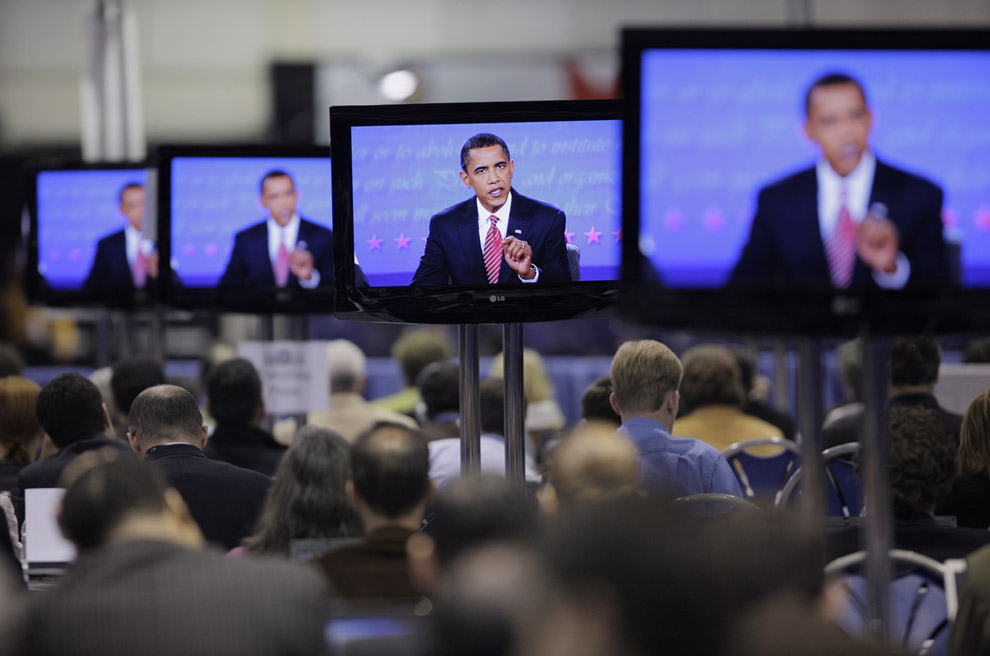Recent history suggests that like other countries of the western Pacific rim, Australia usually receives more attention from Republican administrations in Washington. Republicans far outnumber Democrats at the annual Australian-American Leadership Dialogue, even when they hold power in the White House and the Congress. Democrats, on the other hand, tend to be more Atlanticist, their strong preferences for multilateralism structured around a belief that the core of any successful multilateral endeavour must lie in a basic American-European compact. Vice-President Biden’s Senate record betrays strong resonances of these tendencies, and with Senator Clinton as Secretary of State, there is little to suggest that Asia and the western Pacific will be at the top of her priorities.
The crucial aspect of American foreign policy for Australia, now and into the future, lies in the modus vivendi each US administration works out with the emerging power structure in this region. On this crucial question, there are historical causes for concern. The last Democrat administration presided over an unfocused, accident-prone and ineffective foreign policy towards Asia and the Pacific. The departing Republican administration, on the other hand, was probably more effective in Asia and the Pacific than in any other region. It oversaw the emergence of stable and positive relationships between Washington and – simultaneously – the region’s three great powers, China, Japan and India. That the Bush administration managed to help draw Japan and India out into more conventional great power postures, without unduly antagonising China, must rate as one of the great unacknowledged accomplishments of modern statecraft.
All eyes will be focused on how Obama and his foreign policy team handle the complexities of the financial crisis, Afghanistan, Iraq, Russia and its neighbours, and Israel-Palestine. Equal attention should be given to how it handles the foreign policy reins in the Asia Pacific that will be handed to it by the Bush administration. Whether it can continue the delicate process begun by its predecessor is a major question for Australia. This should form the core of the Rudd government’s engagement with the new administration in the United States. Arguably, Australian governments have never effectively used their access in Washington to try to shape American policy towards Asia in positive and constructive ways. This may be the time Canberra has to step up to this challenge.


It is not true that Republicans always outnumber Democrats at the Leadership Dialogue.
This is a false impression gained among security and foreign policy types who fail to observe delegations in total. The Obama administration will have a number AALD members involved. Further, the foundation board in the USA which resources and administers AALD events in the USA has always had a majority of Democrats on it
If it is true that Australian governments have traditionally experienced better relations with GOP administrations—which is debatable in the context of 1951 onwards— it has occurred within the context of the AALD having always been balanced and bipartisan in its modus operandi.
Phil Scanlan
Founder, Australian American Leadership Dialogue
I was shocked to see this sentence: “Barack Obama will be the first President of the
United States to have visited Australia prior to assuming office.” I am not
an expert on US presidents, but I am aware of at least three others who
visited Australia, prior to becoming president.
Herbert Hoover, who was a mining engineer by profession, lived in WA during
1897-98 and visited Australia several times during the early 1900s.
Lyndon Johnson visited as a US Navy staff officer during World War II. He
was also a Congressman at the time, so his visit is well-documented.
From a brief search of web sources, it appears that John F. Kennedy, who
served on USN patrol boats during WW2, was based in Townsville for a period.
As I say, I am no expert, so there may be others. For instance, Richard
Nixon and George Bush senior also served in the South Pacific during WW2.